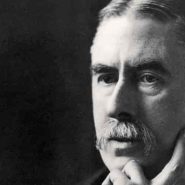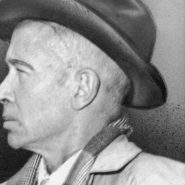By Walt Whitman (1855, revised 1892)
I celebrate myself, and sing myself,
And what I assume you shall assume,
For every atom belonging to me as good belongs to you.
I loafe and invite my soul,
I lean and loafe at my ease… observing a spear of summer grass.
Have you reckon’d a thousand acres much? have you reckon’d the earth much?
Have you practis’d so long to learn to read?
Have you felt so proud to get at the meaning of poems?
Stop this day and night with me and you shall possess the origin of all poems,
You shall possess the good of the earth and sun… there are millions of suns left,
You shall no longer take things at second or third hand… nor look through the eyes of the dead…
nor feed on the spectres in books,
You shall not look through my eyes either, nor take things from me,
You shall listen to all sides and filter them from your self.
I am the poet of the Body and I am the poet of the Soul,
The pleasures of heaven are with me and the pains of hell are with me,
The first I graft and increase upon myself, the latter I translate into a new tongue.
Do I contradict myself?
Very well then I contradict myself,
(I am large, I contain multitudes.)
Failing to fetch me at first keep encouraged,
Missing me one place search another,
I stop somewhere waiting for you.
Originally published in Leaves of Grass (1855) by Walt Whitman. Public domain.
Analysis
Whitman’s “Song of Myself” announces a new democratic poetics — a voice that refuses hierarchy and expands the lyric “I” until it can hold everyone. The speaker moves from a single blade of grass to the cosmos, from the intimacy of the body to the boundless self that communes with strangers. The free verse refuses the constraints of meter as an ethical choice, modeling a form supple enough to include contradiction, desire, labor, ecstasy, and grief within one capacious voice.
What makes the poem inexhaustible is its paradoxical hospitality. Whitman’s “I” is not merely personal; it is a porous self that invites the reader to “stop this day and night with me.” The famous declaration “I am large, I contain multitudes” is not bravado but method: to write a poem as inclusive as a nation, Whitman lets opposites coexist. The result is a lyric of companionship that treats poetry as an encounter — body with soul, self with others, the single line with the open road.

